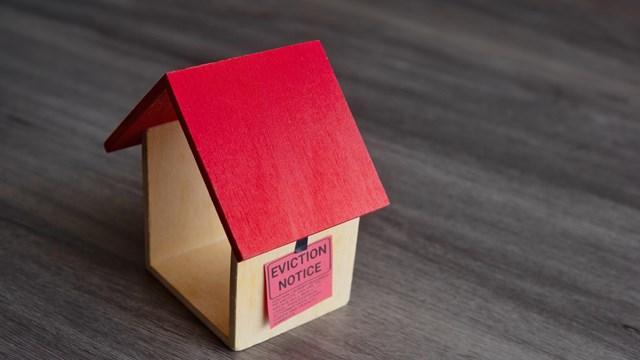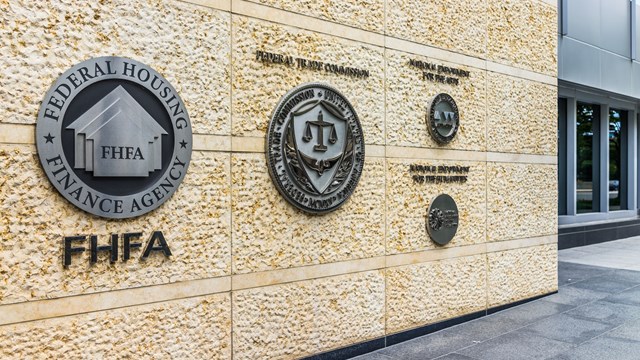The 2013 legislative session in Trenton is underway. As always, each session in the Senate and the Assembly includes bills that relate to housing, including some that impact the state’s condo developments and HOAs as well as a relatively small number of co-ops in several New Jersey municipalities.
Of course, housing-related organizations—including those specifically dealing with condos and HOAs—are looking at these bills and deciding which ones are important enough to take a stand on. What are some of these groups’ take on the current session?
Hot Issues
In New Jersey, the most important organization representing the condo and HOA community is Community Associations Institute of New Jersey (CAI-NJ). For attorney Thomas Martin, chair of CAI-NJ’s Legislative Action Committee, the rising number or “orphaned” condo and HOA units—in which the bank has taken over the unit, but then doesn’t take control of it or does very slowly because the unit would be difficult to sell in today’s real estate market—is of prime importance. It can be difficult, he says, particularly in an HOA, to have an “abandoned eyesore” as your neighbor.
“We’re doing work on a bill to make sure that a mortgage holder has to maintain the property of an abandoned unit,” says Martin.
Ronald Perl, a partner with Princeton-based Hill Wallack, LLP, has not only been active in CAI-NJ but has been president of the national Community Associations Institute. “CAI’s major initiative at this point,” he says, “is a manager licensing bill. The CAI bill recognizes that community management differs from the management of commercial or rental properties, and is vastly different from the practice of real estate sales or rentals.”
Perl also commented on A3373, and its companion bill in the Senate, S2312, which makes a homeowners’ association in which the developer’s control of the executive board has not been surrendered a public body under the Open Public Meetings Act. “I believe that while the underlying problem (with developer-controlled associations) is a valid one, there is no need to subject private association meetings to the open meetings law,” he says. “The meeting issue is part of a broader issue concerning extending development periods and developing control during the long period of development.”
For the New Jersey Apartment Association (NJAA), which mainly represents the interest of rental-apartment owners and managers but also represents some condo managers, there are two priorities. One, according to Conor Fennessy, the organization’s vice president of government affairs, is A3317/S2114, a bill dealing with all multiple dwellings (including condos and co-ops), which “eliminates duplication and redundancy in the registration of apartments.”
Fennessy explains that since 1967, the state requires that buildings register with the state, for a fee of about $10 per building. Now, he says, many municipalities are beginning to have their own registration process, charging $50 to $100 per unit—a cost that would drive up the costs for building owners and managers. “We raised this issue with the governor’s Red Tape Review Commission,” Fennessy said, “and the commission recommended that local registrations be eliminated.”
The second priority for NJAA is S1914, which “requires certain user fees for the provision of traditional municipal services to be included within the 2% municipal and county property tax levy cap.” Fennessy explains that municipalities, searching for new sources of revenue, are now beginning to charge fees for items that used to be covered under that community’s property taxes. “You are now paying fees for the same services you used to get for free,” he says.
Yet another relevant organization for the housing community is the Institute of Real Estate Management (IREM), which represents both commercial and residential real estate managers.
More on Foreclosures
Like CAI-NJ’s Martin, Scott Dalley, a property manager and senior vice president with Access Property Management, who chairs the IREM-New Jersey Chapter 1 Legislative Committee, also feels that the existence of units in HOAs or condos that have been abandoned or where owners are no longer paying their mortgages causes a terrible burden on those owners, who are paying their maintenance fees.
“The foreclosure process is often taking more than two years, and mortgage holders are often slow to take over and get the foreclosed-upon property marketable for a new owner.” It becomes a vicious cycle, he says, with more owners ending up underwater—owing more money on their mortgages than their home is worth.
Most of the activity in regard to foreclosure and the mortgage crisis, says Perl, is on the federal level. “The most recent focus has been on the Consumer Financial Protection Bureau, the purpose of which, according to its website, “is to make markets for consumer financial products and services work for Americans—whether they are applying for a mortgage, choosing among credit cards, or using any number of other consumer financial products.”
On the state level, he adds, there is a proposed bill—A3497, that would require certain documentation of the lender’s right to foreclosure and an expedited process for abandoned properties so they can be put back on the market. This bill, however, does not really address the issue of lenders, who do not complete foreclosures, says Perl.
Fannie, Freddie...and Sandy
Turning from state issues for the time being, another matter of concern to the condo/HOA community involves new Fannie Mae/Freddie Mac lending regulations. Among these regulations are provisions stating that developments must have 10 percent or more of their funds set aside in a reserve fund, that no more than 15 percent of the units can be more than a month behind in maintenance or common charges, that the budget must include provision for insurance deductibles, and more.
These rules are making it harder to buy homes and/or get mortgages and loans, and Dalley, for one, feels they will be toned down somewhat in the near future. Martin adds that “the national CAI, is trying to have a realistic approach that can cut through the morass of papers that have to be field every time a loan is filed by FHA.”
Finally, the focus of this year’s legislation, for obvious reasons, is Hurricane Sandy. Although the hurricane affected 24 states, New York and New Jersey were hardest hit by the storm. More than 72,000 homes were destroyed in New Jersey. Although the oceanfront beach towns saw the most damage, Hoboken, was also the victim of devastating floods from the Hudson River.
After the superstorm, hundreds of related bills were introduced, some of which would affect housing. In areas that were dramatically affected by the storm, there will probably be many new building codes designed to protect residents.
Other Sandy-inspired bills, says Perl, include A3706, which aims to prevent enforcement of anti-pet restrictions if a resident is displaced as the result of a disaster; A3479, which would require retirement communities to install an electric generator in the clubhouse in case of emergency; and A3436, which would establish a New Jersey Catastrophe Fund to help pay covered residential damage claims in the event of a catastrophe—to serve as a backstop for the insurance companies in difficult circumstances.
Observing that many associations already have a stockpile of food and water as well as a generator in their clubhouse, Martin, of the law firm of Nowell Amoroso Klein Bierman PA in Hackensack, comments, “Trenton is moving toward relations that most associations already have in place.” Still, there are many problems that need actions, and one of these is insurance. “If your basement is a certain number of feet below sea level,” he says, “it may not be insured.” One must also remember that climate-related bills were introduced even before Sandy, in the wake of Hurricane Irene. Irene, in 2011, also caused extensive damage in New Jersey, with trees downed, railroads and highways flooded, and shorefront towns evacuated.
Making Their Influence Felt
Now that we’ve been “introduced” to CAI-NJ, IREM and NJAA, how do these organizations and other housing-related groups represent their memberships before the lawmakers?
On one level, they serve as a resource for busy legislators, providing information and expertise about the housing field and, at times, guiding them through the process. They also will communicate to the legislators whether a particular bill is beneficial and should be passed, or whether it needs change and could hurt the community.
Although most legislators are sincere in trying to help their constituents, says Perl, sometimes there are bills that show a lack of understanding of what condos or HOAs are about, and that’s where groups like CAI-NJ and others come in.
Groups also send representatives to testify at hearings and committee meetings on pending legislation, and generally seek to make sure bills they’re interested in progress. If legislators don’t get behind a bill, it very well may die in committee and never get onto the floor.
What does it take to be an advocate? “Getting in front of the decision makers takes money,” says Dalley, “and you also need to have an understanding of how the system works. A good lobbying firm is instrumental in helping organizations negotiate the terrain in Trenton.” As a national organization, he says, IREM takes lobbying seriously—every year, IREM members from all over the country converge on Washington, D.C., for the organization’s Leadership and Legislative Summit.
How has the ongoing recession affecting the housing measures being debated and voted on? To answer this question, Dalley returns to the subject of foreclosures. “Bills expediting the foreclosure process are now being considered. For too long,” said Dalley, “the foreclosure process has been overwhelmed with the sheer number of foreclosures, and that has contributed to the problems that common interest communities in particular have had to endure.”
More and More Bills
Christopher Mangold, the supervisor of the legislative information and bill room of the state Office of Legislative Services provided The New Jersey Cooperator with a list of the housing-related bills that were on tap in late February/early March, as this article was being written. There were 22 pages of bills, and about two pages under a general heading of “Housing Condo, Co-ops, Mobile Homes.” (Why mobile homes are linked in with condos is anybody’s guess.)
Among these were bills extending veterans’ property tax exemptions to co-op shareholders; prohibiting enforcement of anti-pet bylaws for 12 months for FEMA-designated displaced persons; creating a dispute resolution program for associations; providing fair standards for HOA elections; expediting conversions of co-ops into condos; and an “Owners’ Rights and Obligations in Shared Ownership Communities Act.”
Candice Alfonso, senior counsel and aide to the Assembly Housing and Local Government Committee, told us, “As of February 27, 2013, there are over 88 housing-related pieces of legislation currently pending in the Assembly Housing and Local Government committee. In the Senate Community and Urban Affairs Committee, there are over 67 housing-related pieces of legislation pending.”
However, she says, “From January 2012 to February 2013, eight housing-related pieces of legislation have been released from the Assembly committee, and 11 have been released from the Senate committee.”
In other words, most of the bills that have been introduced will never get onto the floor. Which bills will advance to the governor’s desk? Will legislation that has been endorsed by CAI-NJ, IREM, NJAA and other organizations succeed in helping unit owners, managers and others in the overall housing community? The New Jersey Cooperator will help keep your own building or HOA abreast of the goings-on in Trenton, and you can also visit the legislature’s official sites, check with your representatives, and speak to representatives of condo- and HOA-related organizations. Knowing how the process works is a key component of participation in it.
Raanan Geberer is a freelance writer and a frequent contributor to The New Jersey Cooperator.







Comments
Leave a Comment